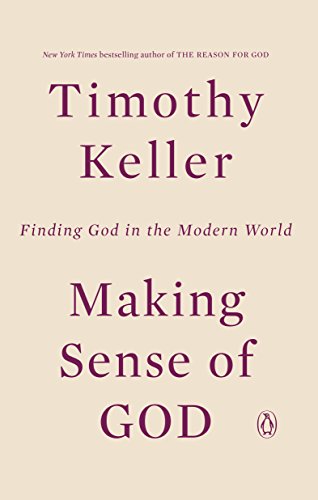Quotes about Feelings
We must not allow our emotions to hold sway over our minds. Rather, we must seek to let the truth of God rule our minds. Our emotions must become subservient to the truth.
Trusting God, 1988, p. 140. Used by permission of NavPress – www.navpress.com. All rights reserved. Get this book!
[Many] falsely suppose that the feelings, which God has implanted in us as natural, proceed only from a defect. Accordingly the perfecting of believers does not depend on their casting off all feelings, but on their yielding to them and controlling them, only for proper reason.
As we feel the calamities of war more than the pleasures of peace, and diseases more than the quietness of health, and the hardness of poverty more than the commodities of abundance; even so we ought not to marvel if we feel the stingings and pricks of sin a great deal more than the consolations of the righteousness of Jesus Christ.
A Puritan Golden Treasury, compiled by I.D.E. Thomas, by permission of Banner of Truth, Carlisle, PA. 2000, p. 89
Resolved, whenever my feelings begin to appear in the least out of order, when I am conscious of the least uneasiness within, or the least irregularity without, I will then subject myself to the strictest examination (July 4, and 13, 1723).
We never ought to allow any joy or sorrow, but what helps religion.
Our external delights, our ambition and reputation, and our human relationships – for all these things our desires are eager, our appetites strong, our love warm and affectionate, our zeal ardent. Our hearts are tender and sensitive when it comes to these things, easily moved, deeply impressed, much concerned, and greatly engaged. We are depressed at our losses and excited and joyful about our worldly successes and prosperity. But when it comes to spiritual matters, how dull we feel! How heavy and hard our hearts! We can sit and hear of the infinite height, and depth, and length, and breadth of the love of God in Christ Jesus, of His giving His infinitely dear Son – and yet be cold and unmoved!… If we are going to be emotional about anything, shouldn’t it be our spiritual lives? Is anything more inspiring, more exciting, more loveable and desirable in heaven or earth than the gospel of Jesus Christ?… The gospel story is designed to affect us emotionally – and our emotions are designed to be affected by its beauty and glory. It touches our hearts at their tenderest parts, shaking us deeply to the core. We should be utterly humbled that we are not more emotionally affected than we are.
It is Christ who is to be exalted, not our feelings. We will know Him by obedience, not by emotions. Our love will be shown by obedience, not by how good we feel about God at a given moment. “And love means following the commands of God.” “Do you love Me?” Jesus asked Peter. “Feed My lambs.” He was not asking, “How do you feel about Me?” for love is not a feeling. He was asking for action.
Discipline – The Glad Surrender, Revell, 1982, p. 148. Get this book!
Where there is no “moral gravity” – that is, no force that draws us to the center – there is spiritual weightlessness. We float on feelings that will carry us where we never meant to go; we bubble with emotional experiences that we often take for spiritual ones; and we are puffed up with pride. Instead of seriousness, there is foolishness. Instead of gravity, flippancy. Sentimentality takes the place of theology. Our reference point will never serve to keep our feet on solid rock, for our reference point, until we answer God’s call, is merely ourselves. We cannot possibly tell which end is up. Paul calls them fools who “…measure themselves by themselves, to find in themselves their own standard of comparison!”
Discipline – The Glad Surrender, Revell, 1982, p. 19-20. Get this book!
We should understand that the subjective depends on the objective. Right emotions depend on, and derive from, sound doctrine.
How Does Hell Glorify God? © 9Marks. Website: www.9Marks.org. Email: info@9marks.org. Toll Free: (888) 543-1030. Used by Permission.
Feelings of sorrow alone aren’t necessarily conviction. We can be sorrowful for many reasons, including selfish ones. We can be sorry for the bad consequences of our sin, sorry we were caught, sorry we lost someone’s respect. The kind of worldly grief can’t begin to address the true offense of sin, and it can’t begin to change us [see 2 Cor. 7:8-9]. Only godly grief brings repentance. And only repentance testifies to the surgical effect of God’s truth applied to our sinful hearts.
What scares me is the anti-intellectual, anti-critical thinking philosophy that has spilled over into the church. This philosophy tends to romanticize the faith, making the local church into an experience center… Their concept of “church” is that they are spiritual consumers and that the church’s job is to meet their “felt needs.”
Copied from Right Thinking by Bill Hull copyright 1985, p. 66. Used by permission of NavPress – www.navpress.com. All rights reserved
Some Christians repress their emotions as they sing. They fear feeling anything too strongly and think maturity means holding back. But the problem is emotionalism, not emotions. Emotionalism pursues feelings as an end in themselves. It’s wanting to feel something with no regard for how that feeling is produced or its ultimate purpose. Emotionalism can also view heightened emotions as the infallible sign that God is present. In contrast, the emotions that singing is meant to evoke are a response to who God is and what He’s done. Vibrant singing enables us to combine truth about God seamlessly with passion for God. Doctrine and devotion. Mind and heart.
Worship Matters, Crossway Books, 2008, Crossway Books, a division of Good News Publishers, Wheaton Illinois 60187, www.crosswaybooks.org, p. 99. Get this book!
The biblical order is: Facts > Faith > Feelings. Feelings are the responders of the soul or heart. They are to follow and respond to our understanding of Scripture, but they are never a safe guide to what we should believe or of the state of our salvation.
Feelings must be engaged. They are meant to be involved… [Yet] our danger is to submit ourselves to our feelings and to allow them to dictate to us, to govern and to master us and to control the whole of our lives.
Spiritual Depression – Its Causes and its Cures, 1965, p. 110, 112, Used by Permission from Elizabeth Catherwood (daughter). Get this book!
We must not concentrate overmuch upon our feelings. Do not spend too much time feeling your own pulse taking your own spiritual temperature, do not spend too much time analyzing your feelings. That is the high road to morbidity.
Spiritual Depression – Its Causes and its Cures, 1965, p. 115, Used by Permission from Elizabeth Catherwood (daughter). Get this book!
Faith, obviously, is not a mere matter of feeling. It cannot be, because one’s feelings in this kind of condition can be very changeable. A Christian is not meant to be dejected when everything goes wrong. He is told to “rejoice”. Feelings belong to happiness alone, rejoicing takes in something much bigger than feelings; and if faith were a matter of feelings only, then when things go wrong and feelings change, faith will go. But faith is not a matter of feelings only, faith takes up the whole man including his mind, his intellect and his understanding. It is response to truth.
Spiritual Depression – Its Causes and its Cures, 1965, p. 142, Used by Permission from Elizabeth Catherwood (daughter). Get this book!
I must never ask myself in the first instance: What do I feel about this? The first question is, Do I believe it? Do I accept it, has it gripped me?
Spiritual Depression – Its Causes and its Cures, 1965, p. 115, Used by Permission from Elizabeth Catherwood (daughter).
You should not believe your conscience and your feelings more than the Word which the Lord who receives sinners preaches to you.
You are certainly not to order your life according to your feelings. A conscience fixed on feelings becomes unreliable. If you are subject to depression and melancholy, you of all people should not allow your conscience to be informed by your feelings. Despondent feelings will provoke unnecessary doubts and fears in the soul when not kept in check by a well-advised conscience. The conscience must be persuaded by God’s Word, not by your feelings.
Keeping a Pure Conscience, The article originally appeared (www.gty.org/Resources/Articles/23) at www.gty.org. © 1969-2008. Grace to You. All rights reserved. Used by permission.
Feelings are a poor foundation for marriage, but they can be a wonderful, glorious by-product.
People no longer ask “Is it true?” but “Does it work?” and “How will this make me feel?” Those latter two questions serve as a working definition of truth in our society that rejects the concept of absolute divine truth. Truth is whatever works and produces positive emotions.
On a daily basis we’re faced with two simple choices. We can either listen to ourselves and our constantly changing feelings about our circumstances, or we can talk to ourselves about the unchanging truth of who God is and what He’s accomplished for us at the cross. Far too often we choose to passively listen to ourselves. We sit back and let our view of God and life be shaped by our constantly shifting feelings about our ever-changing circumstances.
The Cross Centered Life, 2002, Used by permission of Sovereign Grace Ministries, p. 47.
“We think with our feelings,” Sinclair Ferguson has said. It’s true. We allow our feelings to guide our thinking and we shouldn’t. Emotions are a wonderful gift from God. And our relationship with God should bring to our lives strong godly affections. However, our emotions shouldn’t be vested with final authority. This should be reserved for God’s Word alone.
The Cross Centered Life, 2002, Used by permission of Sovereign Grace Ministries, p. 48.
The biblical worldview tells us that we do have feelings, that our Creator made us to have feelings. But let’s just say that the Bible gives us due warrant for considering the danger of following our feelings, of letting our feelings drive us rather than say rational behavior or the exercise of the intellect or the exercise of the intellect as guided, informed by character.
The Briefing, Our Dangerous Age of Feelings, Wednesday, June 10, 2020, Part 2. Used by Permission.
As Christians growing into maturity in Christ, we don’t deny our feelings, but rather we pray for our feelings to be aligned with the gospel, aligned with the Word of God, aligned in ways that will only bring glory to Christ, aligned with biblical truth. We want our feelings not to drive the equation of decision-making and understanding. We want feelings to follow. We don’t want to be unfeeling. That would be to be unhuman. That would be a denial of how we are made in God’s image. That would be not only to be insensitive, but incapable of empathy. That can’t be right. But at the same time, we have to recognize it can’t be right for feelings to drive everything.
The Briefing, Our Dangerous Age of Feelings, Wednesday, June 10, 2020, Part 2. Used by Permission.
[We must not let] the foundation for our morality…shift from the objective truth God has given to us in His Word to the subjective notions we create in our minds. Even when we don’t realize the implications of our ideas, we inescapably come to one conclusion: whatever seems right to me or feels right to me is right for me… We turn from worshipping God to worshipping self.
Taken from Counter Culture, Copyright © 2015 by David Platt. Used by permission. Website: Radical.net. Page 8.
It is impossible to separate faith in Christ from feelings for Christ…Faith fuels feeling. True intellectual knowledge of God naturally and necessarily involves deep emotional desire for God.
Taken from Follow Me by David Platt. Copyright © 2013 by David Platt. Used by permission. Website: Radical.net. Page 106.
Opinions and beliefs are meant to be evaluated in the light of truth. What did happen? What do you think and believe? How do you judge people or your situation? Finally, is what you think true and righteous, or false and sinful? Instead of posing these sorts of questions, “I feel that…” ducks conscious evaluation of my ideas and judgments. What I feel just is. True-for-me replaces truth. The Bible has devastating things to say about leaning on your own understanding, about being wise in your own eyes, about the way that seems right to a man, and about people who delight in airing their opinions (see Prov. 3:5; 3:7; 14:12; 18:2).
Seeing With New Eyes, P&R Publishers, 2003, p. 213-214. Get this book!
The ambiguous words “I feel” are commonly used in four distinct ways. The phrase speaks of experience, emotions, thoughts, or desires. Serious problems arise because the word is typically loaded with authority: “If I feel it, then it’s inherently true, right, and valid.” Clear biblical thinking pierces the fog of ambiguity and authority that wraps itself around “feelings.” As minds and hearts are renewed by the Spirit’s life-giving truth, everything about us is touched.
Seeing With New Eyes, P&R Publishers, 2003, p. 216. Get this book!
This use of feeling is also fuzzy and problematic. It loads implicit authority into our impulses, desires, intentions, choices, expectations, and fears. Far from being givens to obey, these are meant to be examined biblically. The words “I feel like” often obscure our responsibility for our desires. People act as if their “feel likes” were authoritative impulses! Deceptive desires determine choices.
The Bible teaches us that our “feel likes” are frequently desires of the flesh. Most of our “felt needs” are idolatrous desires. They are meant to be killed by the Spirit, not indulged. Such is the way of life, freedom, wisdom, and joy in Christ.
Seeing With New Eyes, P&R Publishers, 2003, p. 214. Get this book!
There is great value to us of becoming more deeply emotional over the great issues of our faith. Our age is not deep enough in feelings. Biblical men are depicted as weeping copious tears, as sighing and groaning, as on occasion rejoicing with ecstasy. They were ravished by the very idea of God. They had a passion for Jesus Christ – His person, offices, names, titles, words and works. It is our shame to be so cold, unfeeling and unemotional in spite of all that God has done to us and for us in Christ.
Are We Becoming Reformed Men? Issue 330, March 1991, p. 5, by permission Banner of Truth, Carlisle, PA.
Believe God’s love and power more than you believe your own feelings and experiences. Your rock is Christ, and it is not the rock that ebbs and flows but the sea.
We must never forget that good feelings alone in religion are not the grace of God. We may know the truth intellectually. We may often feel pierced in conscience. We may have religious affections awakened within us, have many anxieties about our souls, and shed many tears. But all this is not conversion. It is not the genuine, saving work of the Holy Spirit.
I declare I know of no state of soul more dangerous than to imagine we are born again and sanctified by the Holy Ghost, because we have picked up a few religious feelings.
It is no answer to tell me that you disapprove of a religion of feelings. If you mean by that that you dislike a religion consisting of nothing but feelings, I agree with you entirely. But if you mean to shut out feelings altogether, you can know little of Christianity. The Bible teaches us plainly that a man may have good feelings without any true religion. But it teaches us no less plainly that there can be no true religion without some feeling towards Christ.
I declare I know no state of soul more dangerous than to imagine we are born again and sanctified by the Holy Ghost, because we have picked up a few religious feelings.
We must stress that the basis for our faith is neither experience nor emotion but the truth as God has given it in verbalized, prepositional form in the Scripture and which we first of all apprehend with our minds.
Measure not God’s love and favour by your own feeling. The sun shines as clearly in the darkest day as it does in the brightest. The difference is not in the sun, but in some clouds which hinder the manifestation of the light thereof.
A Puritan Golden Treasury, compiled by I.D.E. Thomas, by permission of Banner of Truth, Carlisle, PA. 2000, p. 89.
There is nothing so deluding as feelings. Christians cannot live by feelings. Let me further tell you that these feelings are the work of Satan, for they are not right feelings. What right have you to set up your feelings against the Word of Christ.
Suppose you have been outside in extremely cold temperatures, only then to enter the home of a friend who offers you a glass of brandy. A few minutes after drinking it, you become conscious of a feeling of warmth and attribute it to the alcohol. The fact is, the alcohol will actually make you colder. It has for the moment caused your blood vessels to dilate giving you the impression that your body is producing heat. In point of fact, it is losing heat. You may feel you are warming up, but in reality you are cooling down. Your feelings have led you astray. An observer knowledgeable about the effects of alcohol could tell you what was really happening. But if you are relying on your feelings you would reject his conclusions. So, too, in the spiritual realm, feelings can often deceive us as to the true state of affairs. We must have an external reference point or standard of objective truth by which feelings may be evaluated and judged… All subjective states of mind and emotion must be brought under the searchlight of the objective principles of God’s written Word.
Dangers of Intimacy, November 8, 2006, www.enjoyinggodministries.com. Used by Permission.
Tragically, though, many have become so enamored by their intimacy with God that they interpret their subjective states of mind and emotion as infallible indicators of truth. Worse still, some have concluded that because of the depths of intimacy they experience with God that objective revelation is no longer essential; it can be discarded in favor of immediacy of communion and communication with God.
Dangers of Intimacy, November 8, 2006, www.enjoyinggodministries.com. Used by Permission.
The idea of being on fire for Christ will strike some people as dangerous emotionalism. “Surely,” they will say, “We are not meant to go to extremes? You are not asking us to become hot-gospel fanatics?” Well, wait a minute. It depends what you mean. If by “fanaticism” you really mean “wholeheartedness,” then Christianity is a fanatical religion and every Christian should be a fanatic. But fanaticism is not wholeheartedness, nor is wholeheartedness fanaticism. Fanaticism is an unreasoning and unintelligent wholeheartedness. It is the running away of the heart with the head. At the end of a statement prepared for a conference on science, philosophy and religion at Princeton University in 1940 came these words: “Commitment without reflection is fanaticism in action; but reflection without commitment is the paralysis of all action.” What Jesus Christ desires and deserves is the reflection which leads to commitment and the commitment which is born of reflection. This is the meaning of wholeheartedness, of being aflame for God.
Emotion as a result of tragedy is not sin; rejecting God’s sovereignty and responding in anger or impatience is sin. Yes, we accept God’s plan in humble submission, but this doesn’t mean we don’t go before Him to weep and wail.
The human spirit contains our minds and our emotions. Our emotions should never be allowed to rule over our minds. We see too much of that today in what I would label “mindless Christianity.” That eventually leads to hazy theology and ultimately into mysticism.
Practical Wisdom for Pastors, Crossway Books, 2001, p. 66. Get this book!
“Follow your heart” has ended more marriages, caused more addictions, mutilated more bodies, destroyed more souls, and ended more lives than Satan imagined. It’s one of Hell’s most effective slogans. Don’t follow your heart, follow the One who created it.
Throughout the history of the church, emotions were always viewed with suspicion because they could vacillate so wildly. Now they are praised. Too often they are the standards by which we make judgments.
When People are Big and God is Small, P&R Publishing, 1997, p. 84. Used by Permission. Get this book!
Feelings have become the inarticulate mutterings of the divine soul: To be morally upright is to do whatever your heart inspires you to do. When following inner impulses, this assumption declares we can do no wrong.
When People are Big and God is Small, P&R Publishing, 1997, p. 81. Used by Permission. Get this book!
When feelings become more important than faith, people will become more important, and God will become less important.
When People are Big and God is Small, P&R Publishing, 1997, p. 84. Used by Permission. Get this book!
Sight is not faith, and hearing is not faith, neither is feeling faith; but believing when we neither see, hear, nor feel is faith; and everywhere the Bible tells us our salvation is to be by faith. Therefore we must believe before we feel, and often against our feelings, if we would honor God by our faith.
Any time our emotions drive the car, we soon end up in a ditch.






























